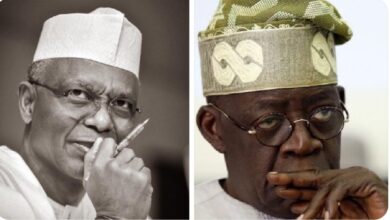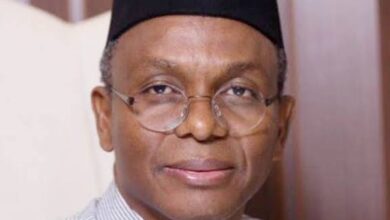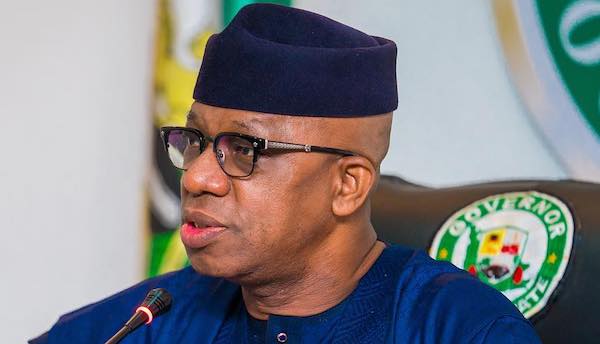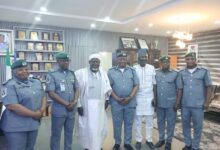Terrorism financing must be curbed, says President Buhari

By Busola Samuel
President Muhammadu Buhari has emphasised the need to curb the flow of terrorism financing.
Speaking at the meeting of the African Union Peace and Security Council in Addis Ababa, Ethiopia on Saturday, under the theme, “Towards a Comprehensive Approach to Combat the Transnational Threat to Terrorism,” the President said:
“The need to curb the flow of terrorism financing cannot be over-emphasised. Concerted efforts must be made to not only dismantle the network between transnational organised crimes and terrorist organisations, but also to block the payment of ransom to terrorist groups.”
President Buhari, according to a statement by his Senior Special Assistant on Media and Publicity Mallam Garba Shehu, said Nigeria remained committed to supporting counter terrorism efforts within the African Union and the United Nations, while recalling the UN Resolution 1373 which stressed that “any person who participates in the financing, planning, preparation or perpetration of terrorist acts should be brought to justice.”
The Nigerian leader called for resolute and coordinated initiatives by developing an African Union data base of persons or groups and entities involved in terrorist acts for use by law enforcement agents.
According to him, “Nigeria believes that the timely establishment of this tool at the continental level will be strategic in this fight.”
President Buhari, while expressing Nigeria’s grave concern over the increasing threats posed by transnational terrorism and the attendant humanitarian crisis, also condemned in the strongest terms the continued activities of the terrorist groups in Africa, and around the world.
He called for more concerted action by the African body and the international community to address the global scourge.
In doing that, the President noted that the conditions that are conducive to the spread of extremism, radicalisation and terrorism must first be addressed. Similarly, he said collaborative measures must be taken to disrupt the recruitment of terrorists, their financing networks and the movement of foreign fighters.
President Buhari disclosed that Nigeria has enacted domestic anti-terrorism laws that also deal with related issues such as kidnapping, drug peddling and gun-running. He, however, noted that, “Terrorism cannot be defeated only through military force and law enforcement measures. We need to adopt a multifaceted approach of good governance, economic development and creation of job opportunities for our youth.”
Linking terrorist activities to climate change, the President reiterated Nigeria’s “important call for global action to support the recharging of the Lake Chad Basin,” which has shrunk by over 80 per cent and has impacted negatively on the livelihood of millions of people in the countries of the Basin.
According to him, “There is considerable evidence that the environmental state of the Lake contributed to the radicalisation of jobless youth who joined Boko Haram.”
In their submissions, the Chairperson of the AU Peace and Security Council, President Abdel Fattah el-Sisi of Egypt, the African Union Commission Chairperson, Moussa Faki Mahamat, and the United Nations Secretary-General, Antonio Guterres, agreed on the real threat of transnational terrorism, and the need for global efforts to curb the negative trend.








